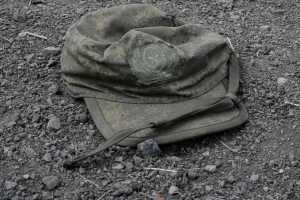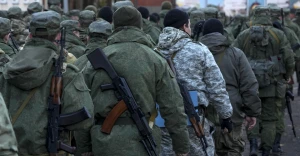
Fresh Kremlin narratives
On June 13, Putin once again spoke to 'war correspondents.' This is the propaganda wing of the newest oprichnina, which the Putin regime needed to strengthen its dictatorship in the public space of modern Russia
The ideological part of this oprichnina (a state policy of Tsar Ivan the Terrible, featuring mass repression of the nobility, including public executions and confiscation of their lands and property - ed.) is made up of figures such as Dugin and Karaganov, the military part is made up of Prigozhin and Kadyrov, and the most numerous propaganda part, in addition to Solovyov, Skabeeva and Simonyan, is represented by a whole flock of bloggers and 'military correspondents'.
The regime sees in this oprichnina its real support, as it realizes how rotten the current state institutions of the Russian Federation are - the administrative and law enforcement vertical, the army, science, education... It is noteworthy that for the second year in a row, Putin has not been able to find time in his busy schedule for the annual “direct line with the president.” But he communicates with military correspondents regularly.
Perhaps it was not Putin who spoke to them, as some conspiracy theorists point out, but his double (without medical equipment and a two-week quarantine for visitors), but in this case it does not matter. What is important is that this 'collective Putin' has decided to throw into the information space and into the minds of Russians.
Amid traditional propaganda, it is worth highlighting a few key messages that provide fresh material for analysis.
Putin, in sync with Lukashenko, decided to recall last year's talks in Istanbul, where the terms of the cessation of hostilities, which were supposedly very favorable for Ukraine, were initiated. Lukashenko even said something about Russia 'renting Crimea,' but the Kremlin denied it. This is a sign that the Kremlin is starting to bargain and is groping for a basis for a new round of negotiations. It is also simultaneously preparing public opinion in Russia for possible concessions.
Putin has once again stated that Russia wants to end the war. Obviously, this is a courtesy to the Russian citizenry, who is experiencing increasing fear and uncertainty amidst continuous mobilization, economic stagnation, and moral fatigue.
When Putin was asked about the likelihood of a new mobilization, he recalled the spring of 2022, when Russian troops were standing near Kyiv. “Do we have to go back there?” the war criminal asked the military correspondent a rhetorical question. And the negative answer was obvious to both of them.
The following passage may indicate how the Kremlin imagines the end of the war. They say that a certain part of Ukrainians consider themselves a separate people and want to live in a separate state, and this desire should be respected. But let them give back to Russia what it gave to Ukraine (the Donetsk-Kryvyi Rih Republic and the Black Sea region are mentioned). That is, the main goal of the war is still territorial gains.
The question arises: what will Russia gain from possessing a few more regions in the face of increasing economic sanctions, local resistance, and Ukraine's determination to return the occupied lands? The answer can be found in another fragment of Putin's narrative. Namely, where he talks about Ukraine's economic losses: metallurgy is gone, pipes are not being produced, aircraft construction has stopped, and agriculture is in decline. That is, all this is recorded and calculated.
If this war has any other pragmatic goal besides propaganda, it is not so much to 'attach' uncertain territories to Russia (the 'military correspondents' themselves testify that the local population is not loyal to the occupying forces), but to weaken Ukraine and reduce its viability. Moscow does not need to take away 'historical lands' as much as it needs to cut off a competitor from ports and fields, destroy our industry and energy sector, and narrow our living space.
In general, it seems as if Putin is constantly justifying himself for starting this war, coming up with new arguments (or rather, phrases) as to why it was necessary. The other part of the Kremlin's narrative is an assurance that everything is under control, that everything in Russia is as it was before, or maybe even better. In reality, both positions are weak and defensive, and the Putin regime will not be able to hold on to them for long.
Much is being decided on the battlefield today. In particular, the future border between the two neighboring states is being drawn with the blood and sweat of Ukrainian defenders. However, the overall outcome of the war and the shape of the future peace will depend on who is ready to stand to the end. And this depends on understanding what you are fighting for and why. Putin's narrative shows that Russia has big problems with this.
And finally. In the patriotic segment of social media, one can often find warnings. Why do we need to monitor what has been said in the Kremlin? What difference does it make what they think? This approach is emotionally understandable, but its rationality is highly questionable. Perhaps, then, we should not analyze the enemy's mobilization reserve, the quantity and quality of its weapons? Ideology and information are among the most important resources in modern warfare. Not to mention strategy.
- News














































